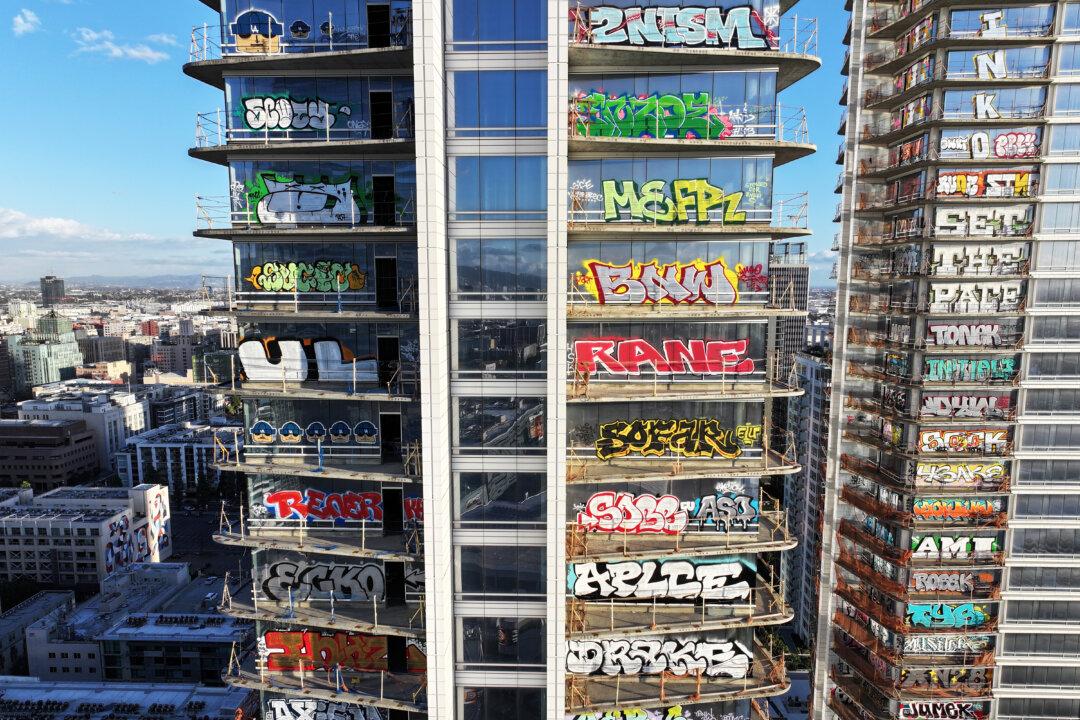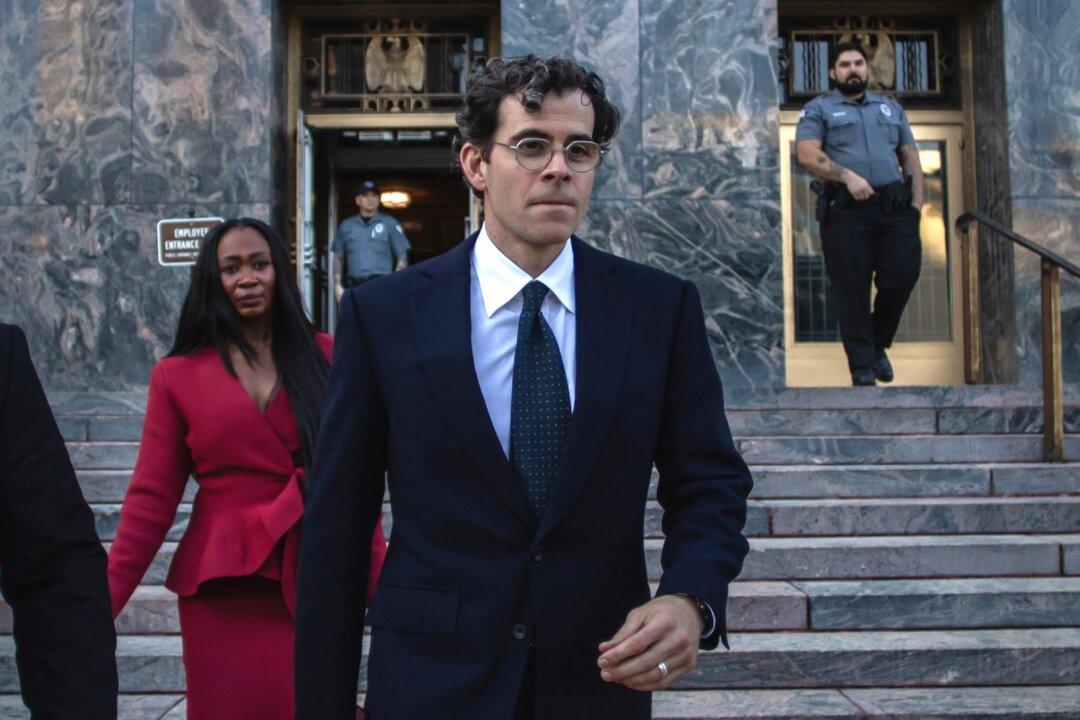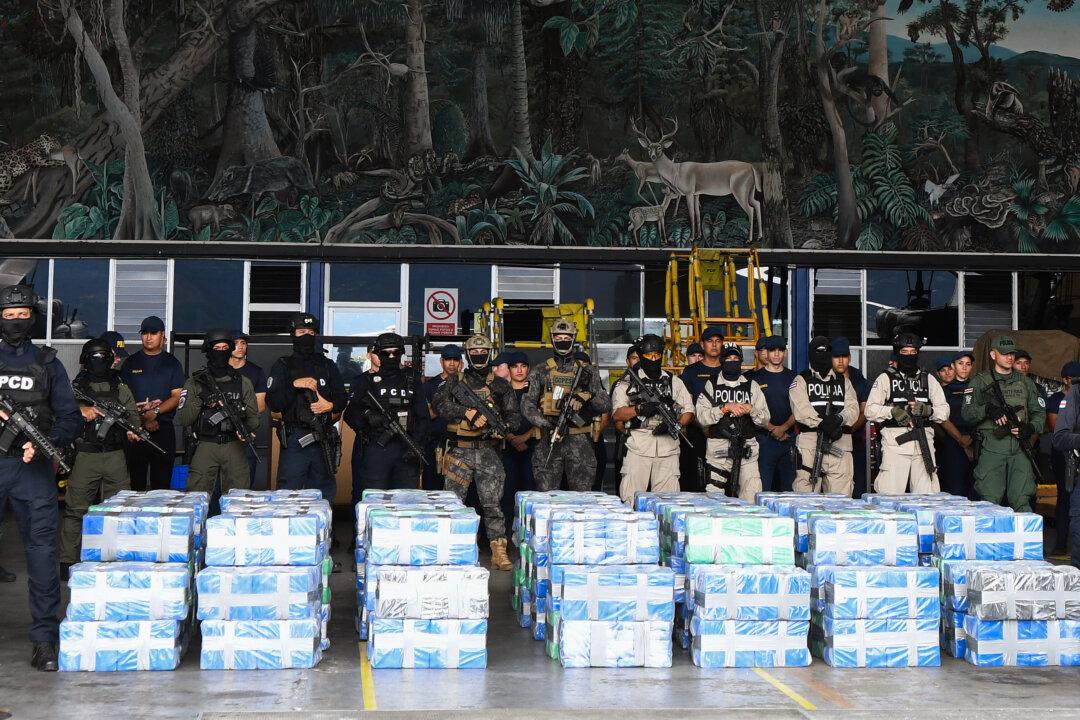When developers announced the $1-billion Oceanwide Plaza project in 2016, they promised a crown jewel in the booming downtown Los Angeles renaissance and said it would be “one of the most significant mixed-use developments in the history” of the city, that would “magnificently” reshape the skyline.
But years after construction halted in 2019, the unfinished and abandoned luxury three-tower site next to Crypto.com Arena has become a symbol of the city’s dysfunction since controversy erupted over its graffitied glass facades in recent weeks, observers argue.





